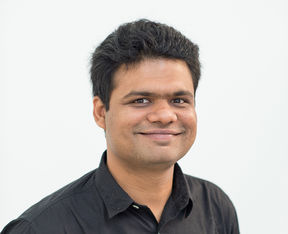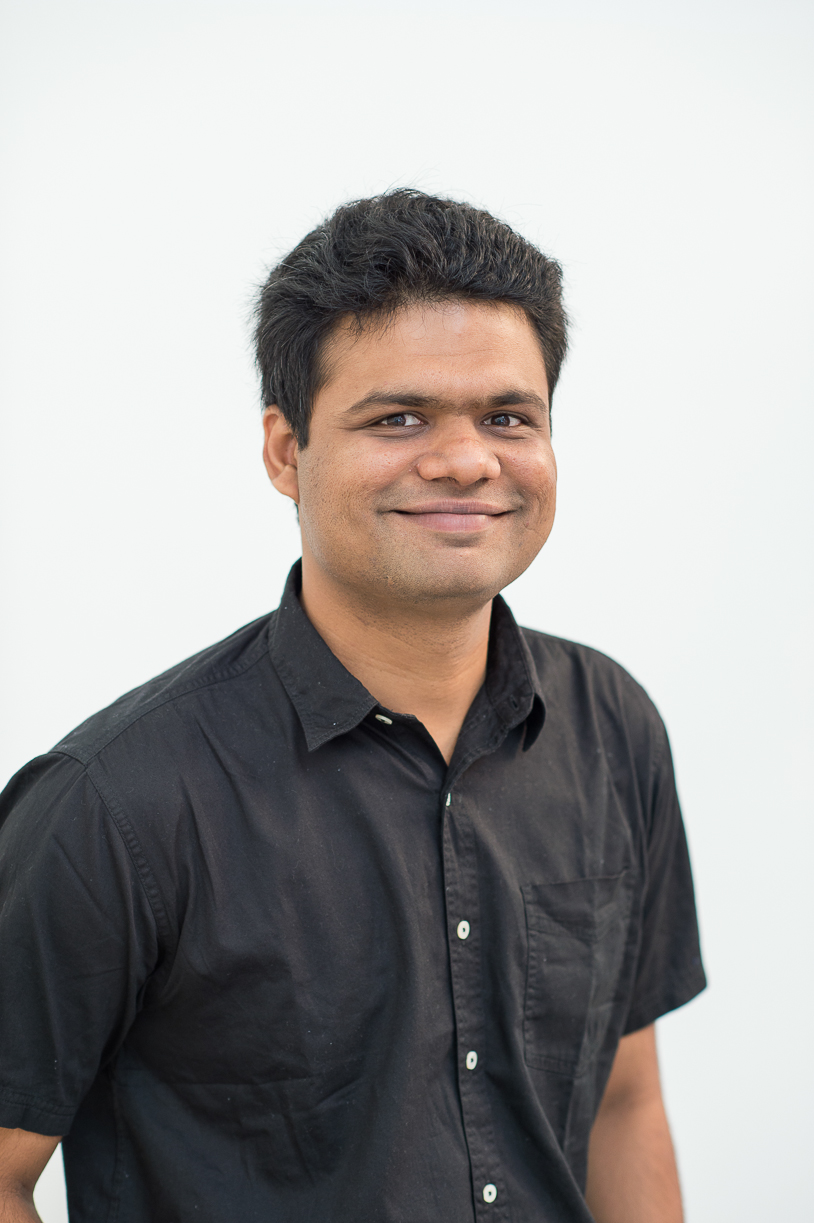Vikas Garg uses deep learning to solve complex real-world problems

What is your research about?
My research at Aalto University and the Finnish Centre of Artificial Intelligence (FCAI) is focused on designing principled AI & quantum machine learning algorithms that address some of the most complex challenges that we are facing today in areas such as healthcare, energy, material discovery, telecom and IoT.
For instance, launching new drugs can take a decade, cost up to two billion dollars and only a miniscule number of these efforts ever make it past the clinical trials. To put it simply, drugs are molecules that target specific proteins or nucleic acids to generate a desired therapeutic response in the patient. One of the main challenges is to identify and design the most promising molecules and protein targets, and to mitigate potential side effects, which are caused by the molecules attaching to unintended proteins.
A mere brute-force approach is ruled out because the number of drug-like molecules is just too high. My group develops highly effective deep learning models for different components of the drug discovery pipeline, including multi-omics analysis, protein design, molecule generation and optimization, assay imputation, and retrosynthesis.
Likewise, for certain types of problems, quantum computing provides significant benefits compared to their classical counterparts. We are exploring ways to exploit the huge potential of quantum algorithms and quantum-inspired methods for some critical applications, especially in the context of combinatorial optimization and the so-called hybrid settings where a classical computing resource works together with a quantum processing unit or accelerator. We also have ongoing projects and collaborations on quantum circuit simulation and optimization.
How would you describe the impact of your research?
My research is motivated by complex real-world problems that necessitate rigorous scientific inquiry, and often leads to new algorithms, insights, and models that bring about significant practical impact. For instance, during my time as a PhD student at the Massachusetts Institute of Technology (MIT), we introduced a principled deep learning-based generative method for de novo protein design or inverse folding problem.
Our method turned out to be more accurate and about 20,000 times faster than the then state-of-the-art method Rosetta fixbb, thereby enabling rapid biomolecule engineering. We also investigated the capabilities of graph neural networks – one of the most prominent topics in machine learning currently – and our insights inspired, in part, novel algorithms and architectures that found much use across applications from diverse domains.
Following up on this line of work here at Aalto and FCAI – in our project HEALED funded by the Academy of Finland - we’ve been working on pushing the frontiers of drug discovery by combining the best of AI models and human experts: we enable the human experts to steer the design process interactively, thereby mitigating the vulnerability of AI to biases inherent in typical datasets, and thus affording better generalization. We’ve also developed new deep graph networks for temporal settings that are provably more powerful than the state of the art.
Vikas Garg, assistant professor at Aalto University, Department of Computer Science'AI ought to be leveraged as a tool to help bridge gaps in our societies, not to accentuate them.'
How do you scale your expertise in machine learning into other areas?
Going back as far as I can remember, I’ve been very curious about how science could potentially help us advance different areas. This inherent curiosity has driven me to collaborate widely, and think rather deeply about the possible connections between the myriad problem settings I’ve been exposed to in Finland, India, and the US. My interactions at premier technical and business schools, and experience leading efforts on high-stakes problems at places such as IBM Research (energy and telecom), Microsoft Research (edge computing), and Amazon A9 (recommender systems) helped consolidate my foundational training. Opportunities extended to me as an energy fellow, and as a member of the Machine Learning for Pharmaceutical Discovery and Synthesis consortium with major pharma companies at MIT, also played their part.
In conjunction with FCAI and Finnish Indian Consortia for Research and Education (FICORE), we’re currently offering a course called AI/ML/DL for Industry, where our students work closely with representatives of many companies on some of the core problems in the industry. Such initiatives also help broaden the scope of problems we can address.
What do you think we should focus more on, when discussing the broad topic of artificial intelligence and its applications?
From a practitioner’s perspective, it’s important to be able to analyze when AI should or should not be applied. The goal should be to solve a problem, and not just enforcing AI or any other tools in situations where better alternatives exist. Misuse of AI should be avoided, and ethical considerations should not be overlooked.
From an AI student’s perspective, the emphasis should be on building strong mathematical fundamentals and implementation skills, and not resorting to too many shortcuts. What’s in vogue today might be rendered unimportant in future, but having a firm foundation would ensure you can adapt to the new requirements. Take your projects seriously!
How do we ensure that AI pertains to ethical principles?
There will always be a tension between how far you want to go with technology and the question of should you – because there might be ethical ramifications. Therefore, the bulk of ethical consideration has to lie at the core of research design – what would be the worst-case repercussions of realizing this technology?
Our passion to solve far-reaching real-world problems must be intimately tied with a sense of responsibility toward ethical considerations because if we don’t, we risk undermining our work due to unintended consequences. For example, a machine learning model that might leak sensitive personal information of patients could make them vulnerable to social stigma and discrimination. Surely, we should tread cautiously!
The onus is on us – all of us – to integrate ethical thinking into our algorithm design process. AI ought to be leveraged as a tool to help bridge gaps in our societies, not to accentuate them.
InstituteQ – The Finnish Quantum Institute
InstituteQ coordinates quantum technology research, education and innovation across Finland


Read more news
A survey on users' experiences of Mykanta in collaboration between Aalto University and Kela
Senior university lecturer Sari Kujala's research group is exploring, in collaboration with Kela, users' experiences with the Mykanta online patient portal and the MyKanta mobile application.
Measuring urban nature: new habitat types and criteria support the prevention of biodiversity loss
A recent report introduces an anthropogenic habitat classification and assessment criteria that make it possible to visualize, measure, and compare nature in the built environment. These tools enable the assessment of ecological condition and support the development of green infrastructure and the prevention of biodiversity loss in cities.Online Writing retreats for doctoral students in Finnish in spring 2026
Join the monthly communal meetings for research reporting.






